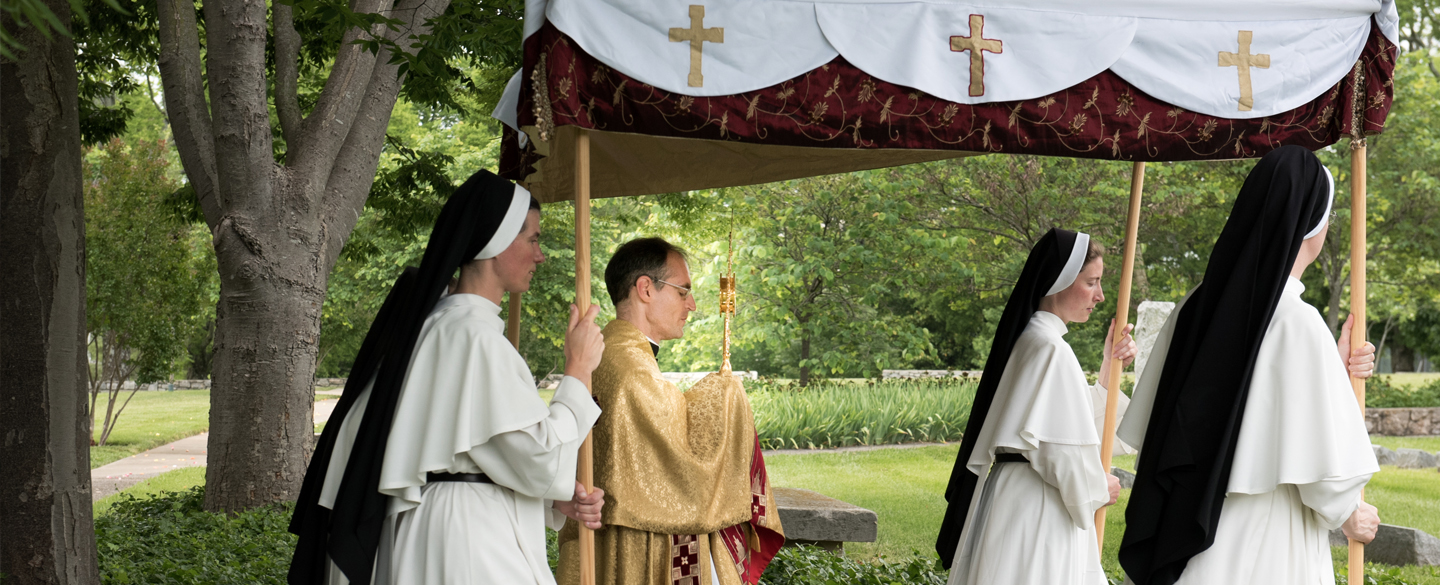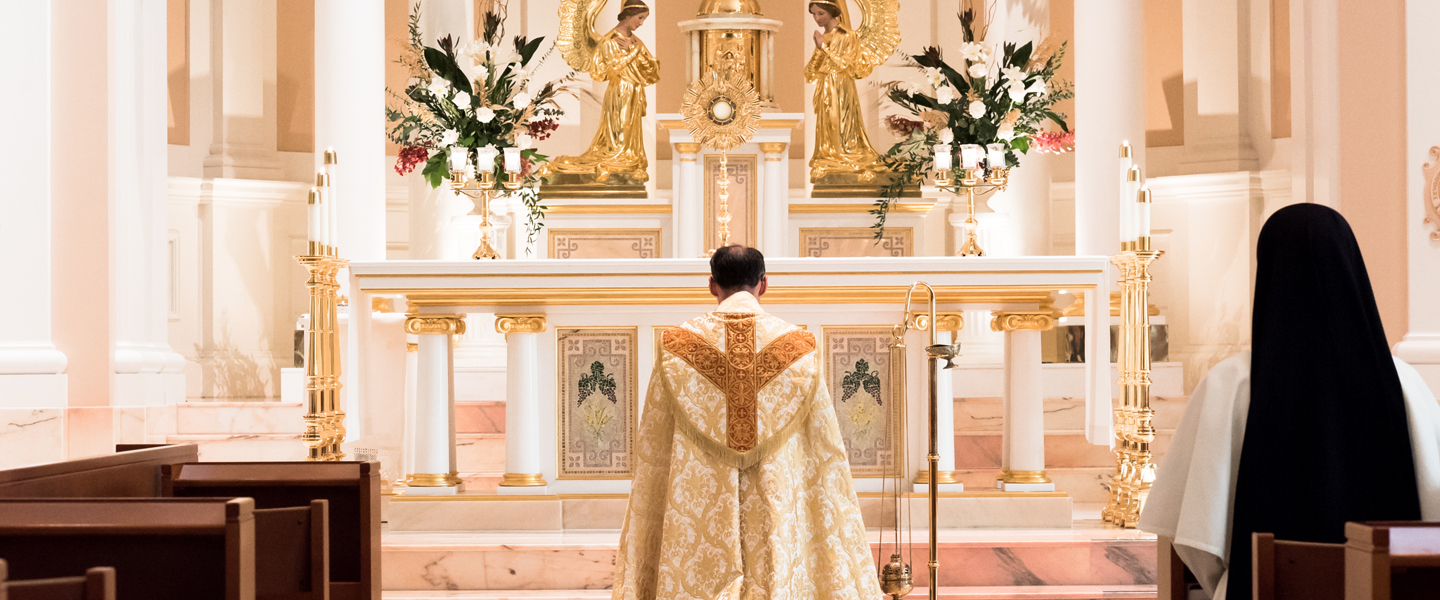
On the Feast of Corpus Christi, we have the joy not only to celebrate this mystery, but also to praise it and sing it through the streets of our City. May the procession we will make at the end of Mass express our gratitude for the whole journey that God has made us travel through the desert of our poverty, to deliver us from servitude, nourishing us with his Love through the Sacrament of his Body and his Blood. (Pope Francis, Homily for Corpus Christi 2015)

The solemnity of Corpus Christi is specially associated with the Dominican Order. This feast was instituted for the Universal Church by Pope Urban IV in 1264 after it had first been celebrated in several dioceses of northern Europe. In his proclamation of the feast, Urban explained that while the institution of the Eucharist was commemorated as part of the liturgy of Holy Thursday, the tenor of that day in the setting of Holy Week was focused on Christ’s Passion. Therefore another Thursday, the second after Pentecost, was chosen for the new feast which would be dedicated exclusively to honor the great sacrament of Christ’s Body and Blood.
The proper texts for the liturgy (Mass and the Divine Office) were composed by St. Thomas Aquinas. Pope Urban admired the theological genius of the famous Dominican and trusted that he could capture the mystery of the Eucharist in words suited to the Church’s worship. Included in the works attributed to St. Thomas for this feast are several hymns as well as the sequence for the Mass. Portions of these hymns are used often in the Church under the titles “Tantum Ergo,” “O Salutaris Hostia,” and “Panis Angelicus.”
As Dominican Sisters of St. Cecilia, we treasure these hymns of our brother Thomas. They are integral to our celebration of the Mass and Office of Corpus Christi. This day is also marked for us by a Eucharistic procession. At our Motherhouse we honor the Most Sacred Body and Blood of Jesus with a procession that includes triple Benediction. The sisters process outside from our chapel, with one of the stations for Benediction in our community cemetery. Hymns, prayers, candles, and incense accompany the Lord, as our bodies and senses are engaged in proclaiming the goodness of the Lord in his Presence among his people. The procession returns to our chapel for the final Benediction, after which Jesus is again reposed in the tabernacle.
While we have the gift of the celebration of the Mass each day, the feast of Corpus Christi gives us an opportunity to renew our love for our Eucharistic Lord. We immerse our minds in consideration of the theological mystery while our bodies and senses also take part in giving due reverence to the Blessed Sacrament.


 Back
Back